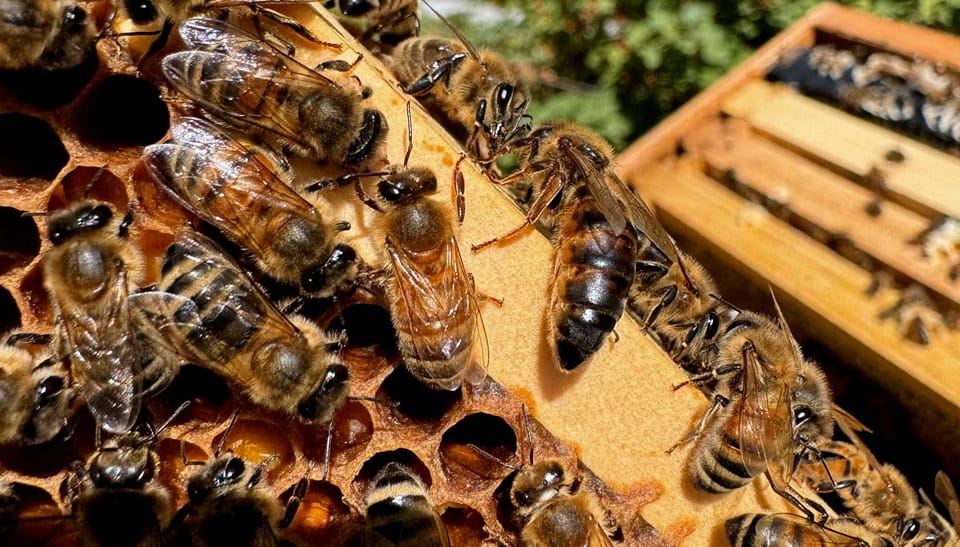Data

It is a capital mistake to theorize before one has data. - Sherlock Holmes
Colony Data
This data helps me to determine what is happening when I am away from the apiary. It helps to paint a picture of flow, dearth, build up or draw down, or even a dreaded swarm. In wintertime, the data helps to calm my (very obsessed) fear of mismanagement [on my part] that will lead to colony death. The bees tell me what they are doing and I confirm it at inspection time. So really, this page is mostly for me since it gives me a HUD view into my apiaries.
The current apiary data collected includes current conditions, AQI, pollen count, forecast (all provided by Tomorrow.io), sunrise/sunset and length of day (provided by Sunrise Sunset). Individual hive data includes hive weight, internal temperature and humidity (all hive data is provided by Broodminder).
Enjoy the data, I know I do!
Note: All data in the following hive graphs are provided in an iframe and are entirely scrollable. Scroll through them to see weight, temperature, and humidity.
Main Apiary
Both my main and cove apiaries are located in Southwestern Salt Lake County, Utah in the foothills of the Oquirrh Mountains. The main apiary has a beautiful "Mountain View" of the Wasatch Mountains across the Salt Lake Valley. There I maintain two colonies and two resource hives (or brood factories). The apiary sits just below 5,100' above sea level in USDA hardiness zone 7a (2023 version). It has access to many trees (like black locust), wildflowers and suburban landscaping.
Current Apiary Conditions
See historic averages.
Current Apiary Solar Time
Green Hive
Yellow Hive
Blue Hive
Orange Hive
Cove Apiary
Located a couple of miles from the main apiary, it sits close to the mouth of a canyon at about 5,220' above sea level and sits in USDA hardiness zone 7a (2023 version). It has access to many trees, wildflowers, suburban landscaping, and small scale farms.
Red Hive
Apiary Forecast
Fruity Apiary
Located in Davis County, Utah in the foothills of the Wasatch Mountains at the mouth of a canyon. It's about 4,600' above sea level and sits in USDA hardiness zone 6b (2023 version). It has access to orchards, wildflowers, suburban landscaping, and many large mature trees. It is in relatively close proximity to a wilderness park and an agricultural schools' botanical center and research farm. Lake-effect snowfall is substantial each year and the apiary is sheltered from the strong east winds that batter the area each year.
Current Apiary Conditions
See historic averages.
